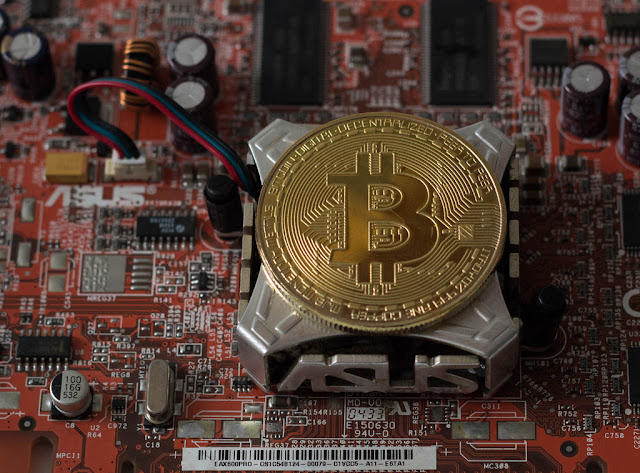This company thinks it can help solve Bitcoin’s energy problem
Soluna says its new business model can be good for blockchains and clean energy development.
By
Mike Orcutt
It’s undeniable: Bitcoin’s energy guzzling is a growing
environmental problem. It’s been estimated that the network uses nearly
as much electricity as all of Ireland, raising alarms about its carbon
footprint. In theory, though, it doesn’t have to consume nearly as much
fossil-fuel-based power as it does today—and a new renewable-energy
company has an ambitious plan to prove it.
The firm, called Soluna,
has acquired a 37,000-acre wind-farm site in Morocco that it says has
the potential to host up to 900 megawatts of power-generating capacity.
(A recent estimate
(PDF) suggests that the Bitcoin network uses at least 2.55 gigawatts.)
Development of the site began nine years ago, but progress stalled under
its previous owners. Soluna, which has teamed with the German
wind-power developer ALTUS AG,
aims to build at least 36 megawatts of capacity by 2020 and complete
the entire 900 megawatts in five years. The wind power will then supply
cheap electricity to a high-density computing center for “mining”
Bitcoin and other cryptocurrencies.
Soluna will use the money it makes from mining to further develop
the wind farm, says CEO John Belizaire, who adds that it will also be
able to make money selling power to the Moroccan grid. He believes
Soluna’s “vertically integrated” mining model represents not only a
cleaner way to maintain Bitcoin’s and other blockchain networks, but
also a new way to fund renewable-energy development.
Mining—the algorithmic process by which the network’s participants
agree that new Bitcoin transactions are valid—is what makes the network
so energy-intensive. Miners compete to add sets of new transactions,
called blocks, to the accounting ledger. This requires performing a
complex calculation many times repeatedly in an attempt to guess a
unique number that cryptographically links the new block to the previous
one. The process stores the data in a way that makes it extremely
difficult—and expensive—to tamper with, since changing data in one block
requires changing all the previous ones as well. (see “How secure is blockchain, really?”)
Electricity is the largest variable cost to miners, who can profit
as long as that cost is smaller than the value of the bitcoins they mint
as reward for maintaining the ledger. That’s a big reason why so many
mining operations are based in China, where in some regions it is
possible to purchase extremely cheap coal-fired power—as cheap as $0.03
per kilowatt-hour. (For comparison, the average residential rate in the
US in May of this year was just over $0.13 per kilowatt-hour.)
Soluna projects
(PDF) that its Moroccan wind farm will be able to generate power as
cheap as the cheapest Chinese coal power. Belizaire believes his company
is the first one aiming to develop and use its own energy resource for
crypto-mining. “Assuming you can develop the power at the lowest cost,
you by definition will always have the lowest cost, because no one is
going to change your power price,” he says. The company “anticipates
that it can profitably mine in almost any foreseeable cryptocurrency
price environment,” according to a white paper
(PDF). Belizaire says it will also be possible to take this business
model to other parts of the world, where Soluna can use it to develop
“similarly rich” clean power resources.
The company has, in effect, taken a long position on blockchain
technology. The bet is that the technology is in its “early, early days”
and is poised, Belizaire says, to usher in “a new internet, if you
will”—one based on decentralized computing. Even if more
energy-efficient consensus mechanisms emerge to replace Bitcoin’s mining
process, such a global “blockchain ecosystem” will still require lots
of energy—and it ought to be supplied by renewable resources, he says.
Published in: https://www.technologyreview.com/s/611908/this-company-thinks-it-can-help-solve-bitcoins-energy-problem/
See more at: Morisberacha.com




Comentarios
Publicar un comentario